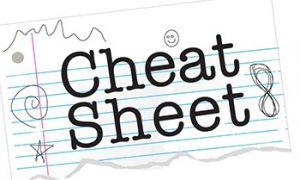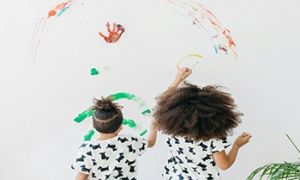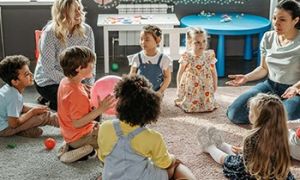

The following is a collection of science-themed “potion recipes” that blend sensory exploration, symbolic meaning, and safe chemical reactions—perfect for World Science Day or any inquiry-based learning moment. Each potion includes: A symbolic name (linked to emotional literacy or global values), a child-safe recipe using common ingredients, and a meaningful intention to spark reflection and storytelling.
Each year on November 10, World Science Day for Peace and Development invites us to reflect on the role of science in building a more inclusive, peaceful, and sustainable world. In early childhood settings, this global observance becomes a beautiful opportunity to nurture curiosity, empathy, and collaborative inquiry.
Australia’s most iconic children’s program, Play School, has teamed up with Little Scientists to bring early childhood educators a vibrant suite of STEM experiments designed for children aged 2–8 years. This exciting collaboration aligns with Series 3 and 4 of Play School’s Science Time, offering hands-on learning experiences that explore everything from sound waves and slime to moon craters and solar energy.
Here’s a themed EYLF-aligned guide to 30 preschool science experiments, complete with materials, instructions, science concepts, and EYLF learning outcomes. This is designed for educators who want to embed intentionality, inquiry, and curriculum links into hands-on science.
Here’s a roundup of 20 super simple science experiments for toddlers in early learning settings. These activities are sensory-rich, safe, and designed to spark curiosity while introducing foundational science concepts.
With National Science Week on from 9th to 17th August 2025, this is a great opportunity to introduce science to babies. For babies it’s less about formal experiments and more about sensory exploration, pattern recognition, and curiosity-driven play—all foundational to scientific thinking and nurturing their natural curiosity and helping them explore the world through sensory-rich, playful experiences.
Introducing children to science at a young age assists in their brain development. Science experiments can be performed on young children. Using materials in experiments that children like to play with helps them to grow big ideas and understand fundamental concepts. The following lists easy science experiments for toddlers and preschoolers to introduce them to the world of science.
Exploring science in early childhood is a fantastic way to nurture curiosity and a love for learning in young children. The following article provides information on Benefits Of Exploring Science In Early Childhood, How To Get Started, How To Create A Science Rich Environment, Incorporating Science into Daily Activities, How To Integrate Science With Other Subjects, Examples Of Themes To Explore Science, Linking To The EYLF and more.
A stalactite is a type of mineral formation that hangs from the ceiling of caves. Watching the slow formation of stalactites teaches patience and keen observation skills. This science project provides hands-on learning about geological processes and the formation of stalactites and stalagmites. The following article provides information on What Is A Stalactite, The Experiment, and more.
Invisible Ink is a great science experiment that enables children to create invisible art and make it magically appear using lemon juice!
 Open ended questions cannot be responded to with one word answers such as yes or no. These types of questions enables a child to provide… Read More
Open ended questions cannot be responded to with one word answers such as yes or no. These types of questions enables a child to provide… Read More
 During your child’s preschool years, an important milestone begins to emerge. This is the development of pre-writing skills. Pre-writing skills are used to encourage, develop… Read More
During your child’s preschool years, an important milestone begins to emerge. This is the development of pre-writing skills. Pre-writing skills are used to encourage, develop… Read More
 Open ended materials enables children to play freely. They are objects that have no rules to follow, use or function. Raw materials that can be… Read More
Open ended materials enables children to play freely. They are objects that have no rules to follow, use or function. Raw materials that can be… Read More
 An Acknowledgment of the Country is a way of showing respect for the Traditional Owners and can be given by both non-Indigenous people and Aboriginal… Read More
An Acknowledgment of the Country is a way of showing respect for the Traditional Owners and can be given by both non-Indigenous people and Aboriginal… Read More
 Language plays an important role in a child’s development. It enables a child to communicate effectively with their family, learn at school, socialize with friends,… Read More
Language plays an important role in a child’s development. It enables a child to communicate effectively with their family, learn at school, socialize with friends,… Read More
 Like adults, children have to deal with their own stress in life. Moving house, starting a new school, preparing for a new sibling - these are… Read More
Like adults, children have to deal with their own stress in life. Moving house, starting a new school, preparing for a new sibling - these are… Read More
 Playdough is such a versatile material. It provides numerous benefits to children as they manipulate it, it is safe and soothing and provides children with… Read More
Playdough is such a versatile material. It provides numerous benefits to children as they manipulate it, it is safe and soothing and provides children with… Read More
 Teaching children about sustainability enables them to appreciate and respect the natural environment. Early childhood services can provide meaningful hand on learning experiences in order… Read More
Teaching children about sustainability enables them to appreciate and respect the natural environment. Early childhood services can provide meaningful hand on learning experiences in order… Read More
 Recycling is an important concept that teaches children to care for the environment. It encourages children to be responsible and show a growing appreciating for… Read More
Recycling is an important concept that teaches children to care for the environment. It encourages children to be responsible and show a growing appreciating for… Read More
 When children apply paint to paper, glue things together, or pound a lump of clay, they experiment with colour, shape design and texture.
Read More
When children apply paint to paper, glue things together, or pound a lump of clay, they experiment with colour, shape design and texture.
Read More

This guide distills the heart of the Early Years Learning Framework into clear, actionable reference...
See more...
In early childhood settings across the country, you can walk into a room and instantly...
See more...
Play isn’t just fun—it’s foundational. For children aged 3 to 5, games offer rich opportunities...
See more...© 2009-2025 Aussie Childcare Network Pty Ltd. All Rights Reserved.

